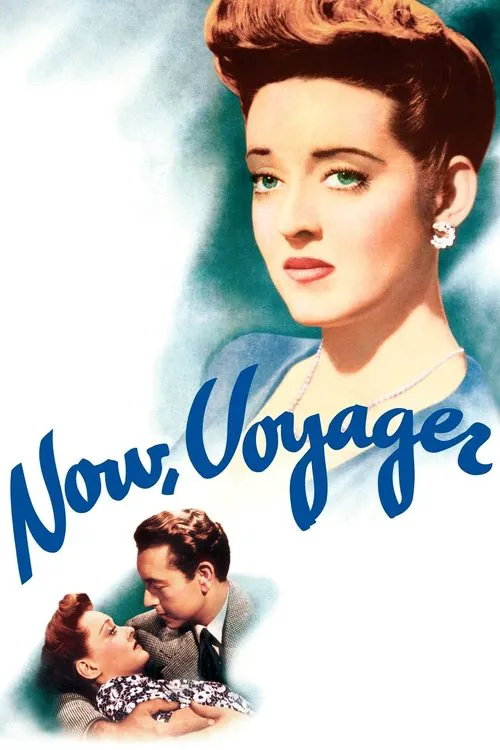Now, Voyager

Plot
In 1942, the lives of Charlotte Vale and her mother, Mrs. Henry Vale, seem like a perfect and harmonious facade. However, beneath this seemingly idyllic surface lies a complex web of repressed emotions, stifled desires, and unfulfilled potential. Mrs. Vale has built her universe around her daughter, Charlotte, with a suffocating grip, dictating every move, every decision, and every aspect of her life. This suffocating grip not only suppresses Charlotte's individuality but also stifles her emotional growth. As the story begins, we witness Charlotte's breakdown at a social gathering, where she appears awkward and out of place among her peers. The breakdown is the culmination of years of suppression, as the pressures from her mother and societal expectations weigh heavily on her fragile mental state. Her nervous collapse forces her mother to confront the stark reality of Charlotte's desperation for freedom and individuality. In an effort to help her daughter, Dr. Jaques, a compassionate psychiatrist, offers a new approach to treatment, suggesting that Charlotte can find salvation through understanding her past and confronting her inner fears. Under Dr. Jaques's guidance, Charlotte embarks on a journey of self-discovery and healing, embracing her inner strength and resilience. As Charlotte grows and finds her footing, she begins to shed the layers of repressed emotions built up over the years. She starts to explore her own identity, forging a path of self-discovery and independence. This newfound sense of self empowers her to question her relationships and her place in the world, sparking a fierce resistance against the constraints imposed by her mother. The introduction of Jerry Dignam, a charismatic and free-spirited artist, marks a pivotal moment in Charlotte's journey. Their meeting on a Caribbean cruise becomes a catalyst for change, as she encounters love and acceptance without condition. Jerry's warmth and genuine affection for Charlotte kindle a new sense of purpose, igniting a flame that will guide her through the challenges to come. As the story unfolds, we witness Charlotte's growth from a timid and repressed young woman to a confident and vibrant individual, capable of embracing life with all its beauty and heartache. Under Jerry's influence, Charlotte begins to see the world in a different light, learning to cherish the value of love, friendship, and connection. However, the journey is not without its obstacles. Charlotte's mother, still clinging to her tight grip, fears the loss of her precious daughter and the end of the suffocating control she has exerted over Charlotte's life. The tension between Charlotte and her mother reaches a boiling point, as the truth and her mother's secrets slowly begin to unravel. In a heart-wrenching confrontation, Charlotte faces the pain of her past, as well as her mother's cruelty and the toxic dynamics of their relationship. This pivotal moment marks the final stage of her healing journey, as she breaks free from the chains of oppression, emerging stronger and wiser. As the novel comes full circle, Charlotte returns home a changed woman, her newfound confidence and self-awareness reflected in her radiant smile. The once-timid and anxious girl has become a radiant and empowered adult, embracing life with open arms. The story concludes with a poignant image of Charlotte and Jerry standing together, an image of the newfound love and freedom Charlotte so desperately craved. In the end, Now, Voyager is a poignant and powerful exploration of the human spirit, a story of self-discovery and empowerment set against the backdrop of a tumultuous life. The movie masterfully weaves together themes of love, family, and individuality, offering a universal message that resonates with audiences of all ages. As we witness Charlotte's transformation, we are reminded of our own capacity for growth, renewal, and the transformative power of love and self-acceptance.
Reviews
Recommendations




